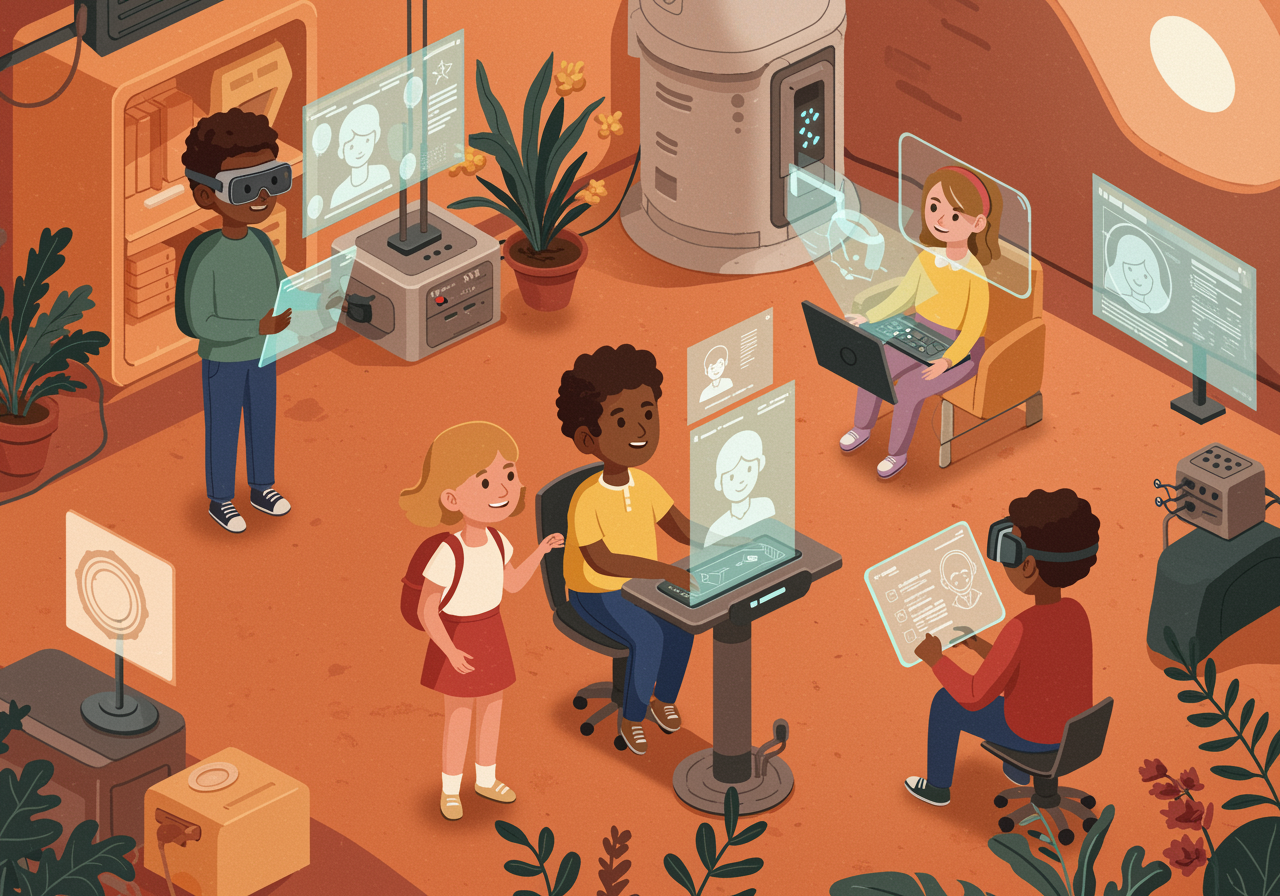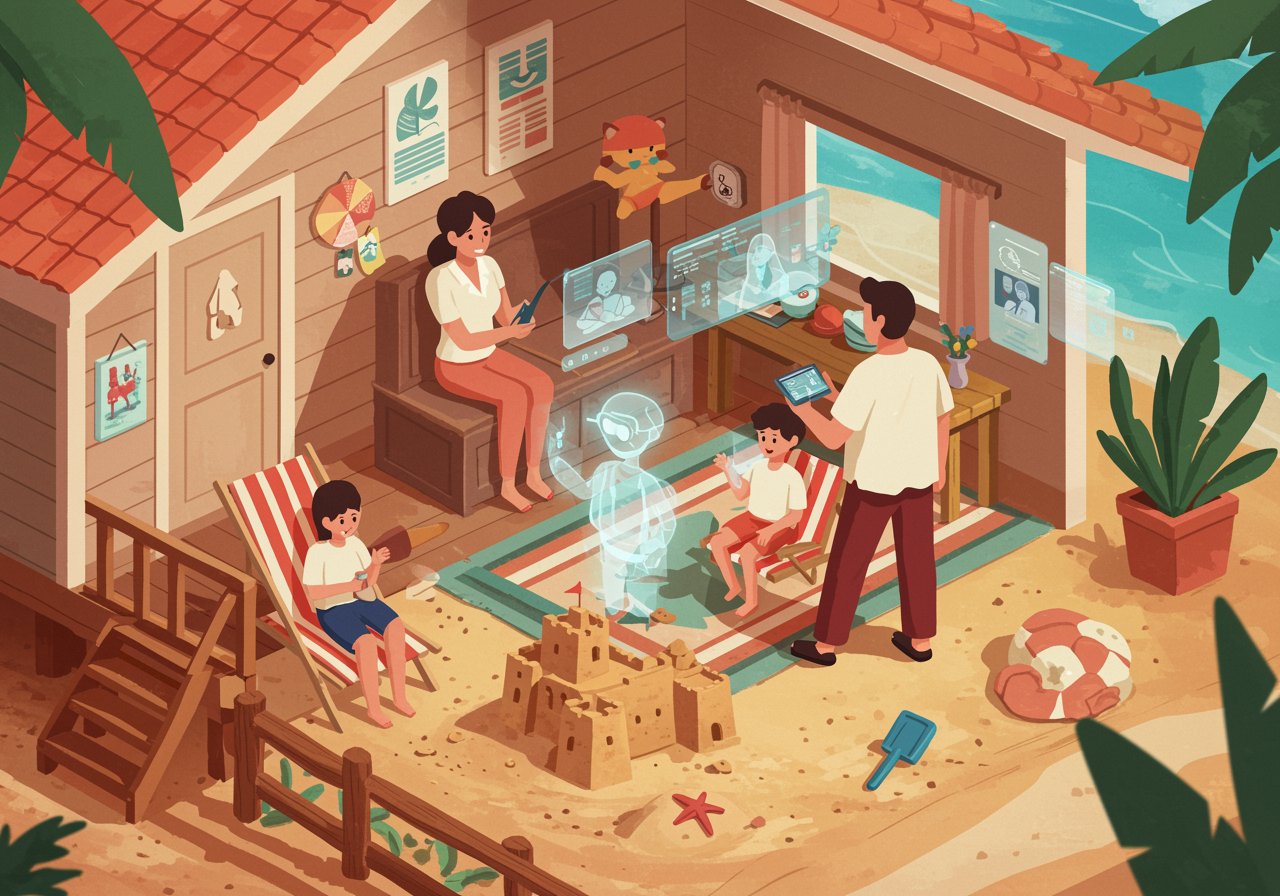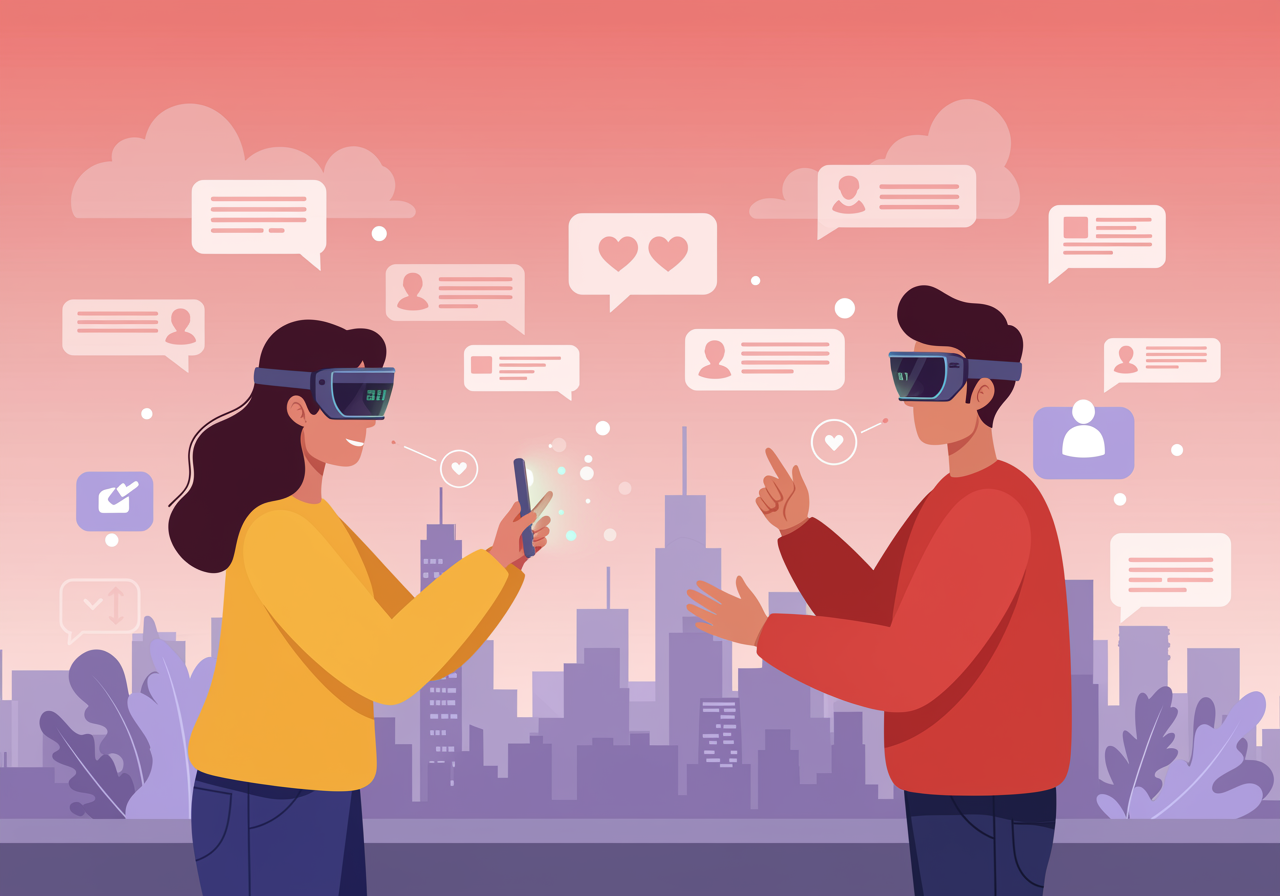Talking Without Words: How Future Tech Will Transform Human Connection

From mind-reading computers to holographic hugs – the wild future of staying in touch
Discover how emerging technologies could revolutionize the way families, friends, and communities connect and communicate in the coming decades.
Overview
Think about how much communication has changed just in your lifetime – from landline phones to smartphones to video calls. Now imagine what the next 20 years might bring! Your teen is growing up in a world where they might soon communicate through virtual reality, get instant translations of any language, or even share thoughts directly through brain-computer interfaces. Understanding these possibilities helps families navigate the exciting (and sometimes overwhelming) future of human connection together.

Understand in 30 Seconds
Get up to speed quickly
- Virtual Reality Hangouts: Instead of video calls, we might meet friends in virtual worlds that feel completely real, where you can 'touch' objects and feel like you're in the same room.
- Universal Translator Magic: AI could instantly translate any language in real-time, making it possible to have natural conversations with anyone in the world, no matter what language they speak.
- Thought-to-Text Technology: Brain-computer interfaces might let people type messages or control devices just by thinking, helping those with disabilities and creating new ways to communicate.
- Holographic Presence: 3D holograms could make it feel like distant family members are actually sitting at your dinner table, bringing a whole new meaning to 'being together.'
Real Life Scenario
Situations you can relate to
Imagine your family is planning a reunion, but your grandparents live across the country and your cousin is studying abroad in Japan. In the future, you might all 'meet' in a virtual beach house that feels completely real – you can build sandcastles together, feel the ocean breeze, and even smell the saltwater. Your cousin who only speaks basic English could chat naturally with your Japanese host family because AI instantly translates everything. And when grandma wants to show off her new garden, she could beam in as a hologram, letting you walk through her flowers like you're actually there. Does this sound amazing or a little overwhelming? How do you think this might change family relationships?

Role Play
Spark a conversation with “what if” scenarios
What if you could communicate with your best friend using only your thoughts?
- Role play: Try having a conversation using only facial expressions and hand gestures – no words allowed! Then discuss what you missed about regular talking and what was actually easier.
What if language barriers completely disappeared tomorrow?
- Role play: Pick a language neither of you speaks and try to have a conversation using online translation tools. Talk about how this might change travel, friendships, and learning.
What if you could attend school as a hologram while sick at home?
- Role play: Set up a video call where one person 'attends' a family dinner remotely. Discuss what felt different and what was missing from the experience.
FAQs
Frequently asked questions people want to know
Will future communication technology make us less human?
Technology is a tool – it's how we use it that matters. Just like phones didn't replace face-to-face conversation but gave us new ways to connect, future tech will likely add options rather than replace human connection.
How soon will these technologies actually be available?
Some are already here in early forms! VR chat exists now, real-time translation is improving rapidly, and brain-computer interfaces are being tested. Full adoption might take 10-20 years.
Will these technologies be safe and private?
That's one of the most important questions we need to ask as these technologies develop. Privacy, security, and ethical use will require careful planning and smart regulations.
Examples in the Wild
See how this works day to day
- Meta's VR workspaces allow people to meet as avatars in virtual offices, collaborating on 3D projects as if they're in the same room (Meta Reality Labs 2024)
- Google's universal translator earbuds can translate over 40 languages in real-time during conversations (Google Translate 2024)
- Neuralink has demonstrated patients controlling computer cursors and typing with their thoughts through brain implants (Neuralink Clinical Trials 2024)
- Holographic communication systems are being tested in South Korea for business meetings and family calls (Samsung Research 2024)
In Summary
What you should know before you start
- Future communication technology will likely make connecting across distances feel more real and natural than ever before
- Language barriers may become a thing of the past with AI-powered real-time translation
- These changes will bring both amazing opportunities and important questions about privacy and human connection
- The key is learning to use new technology thoughtfully while maintaining genuine human relationships
Pro-tip for Parents
You got this!
When your teen gets excited (or worried) about future tech, ask them to imagine both the coolest and most concerning scenarios. This helps them think critically about technology's impact while staying engaged with the possibilities. Remember, they're digital natives who often understand tech intuitively – let them teach you while you guide the conversation about values and human connection.

Keep an Eye Out For
Find these examples in everyday life
- New VR/AR headset announcements and how they're being used for communication
- Stories about AI translation helping people connect across language barriers
- News about brain-computer interface breakthroughs and their potential applications
- Examples of holographic technology being used in entertainment or business
- Discussions about digital privacy and ethics in emerging communication technologies
Explore Beyond
Look up these related research topics
- How artificial intelligence is changing the way we learn and work
- The ethics of technology: balancing innovation with privacy and safety
- Digital citizenship: being a good human in an increasingly connected world
- The psychology of social media and digital communication
- How technology is solving global problems like climate change and poverty